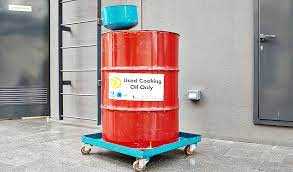
Cooking oil recycling is an important part of waste management, and it presents both challenges and opportunities. Here are some of the key challenges and opportunities facing cooking oil recycling:
Challenges:
Collection and transportation: Collecting and transporting used cooking oil can be challenging, especially for small businesses or households. Specialized equipment and transportation vehicles are needed to handle large quantities of oil.
Contamination: Used cooking oil can easily become contaminated with food scraps, water, and other materials, making it difficult to recycle. Contaminated oil can damage recycling equipment and reduce the quality of recycled products.
Limited markets: The market for recycled cooking oil is limited, and there may be challenges in finding buyers or outlets for the recycled product.
Cost: Recycling used cooking oil can be costly, especially for small-scale recycling programs or individual households. The cost of equipment, transportation, and processing can be a significant barrier.
Opportunities:
Renewable energy: Used cooking oil can be converted into biodiesel, which is a renewable energy source. Biodiesel can be used to power vehicles and machinery, reducing the reliance on fossil fuels.
Environmental benefits: Recycling used cooking oil can help reduce the amount of waste that ends up in landfills, which can have negative environmental impacts. Properly recycling used cooking oil can also help reduce greenhouse gas emissions.
Economic benefits: Recycling used cooking oil can create new job opportunities and support local economies. It can also generate revenue for businesses that collect and recycle used cooking oil.
Sustainability: Recycling used cooking oil is a sustainable practice that can contribute to a more circular economy. It reduces the need for virgin materials and promotes resource conservation.
By addressing the challenges and taking advantage of the opportunities, we can promote the recycling of used cooking oil and contribute to a more sustainable future.
My second Daughter works at https://www.fathopesenergy.com/
FatHopes Energy is a multifaceted Malaysia-based corporation that primarily focuses on developing sustainable fats, oils and grease solutions for advanced biofuel production.











Imran Khan 1 y
Cooking oil recycling is a good technique of waste management.